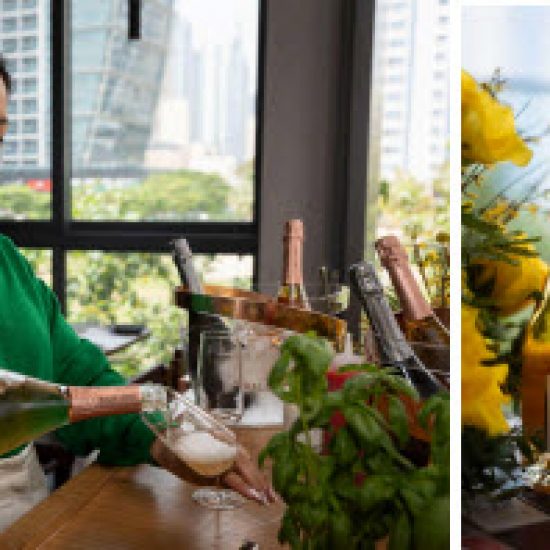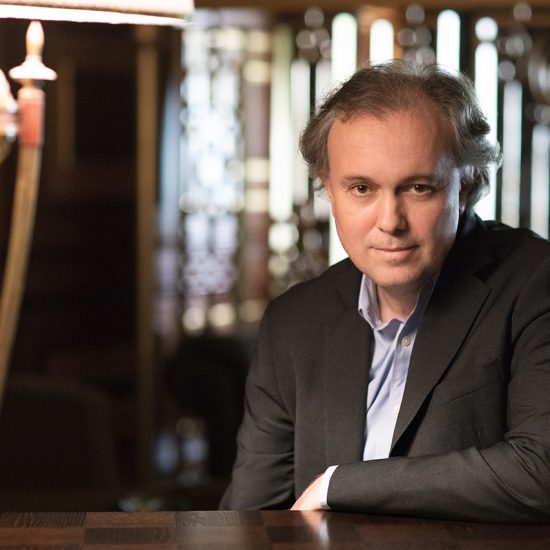
In almost any other part of the world, a friendly, on-camera hug between two senior politicians at a public event would have raised no eyebrows. But in the febrile atmosphere of a Hong Kong bracing itself for the “election” of its fourth chief executive since the former British colony was handed back to China in 1997, Tung Chee-hwa’s embrace of Carrie Lam during a public ceremony in December unleashed a torrent of media speculation that the outcome had already been decided – 2,000 kilometres away in Beijing.
Tung, a wealthy Shanghai-born businessman, became the first chief executive of China’s newly created Special Administrative Region of Hong Kong in 1997. Now a member of the Chinese People’s Political Consultative Conference, a body that advises Beijing, he remains a man of influence whose embrace speaks volumes.
Lam, 59, isn’t the most popular of the five candidates in the race, the winner of which will be chosen on Sunday. Polls in the past three months have shown her consistently trailing the people’s favourite, former treasury boss John Tsang Chun-wah.
But under Hong Kong’s curious electoral system – a product of the pre-handover negotiations between Britain and China, in which Britain sought democratic concessions from Beijing, and Beijing did just enough to salve British guilt at abandoning millions of its former citizens – the people don’t really count.
The candidates for the top job jump through all the usual hoops, staging rallies, giving interviews and taking part in head-to-head TV debates, but the election is decided by the 1,200 members of an election committee, composed chiefly of Beijing-friendly business and professional interests, lightly seasoned with a sprinkling of government appointees. And their choice must be approved by Beijing.
Like Lam, Tsang is an experienced civil servant. He’s also a natural, charming performer in front of crowds and microphones. Lam, on the other hand, by her own admission in a recent, typically wooden interview, is “a very uninteresting person”.
“I have hobbies,” she said. She used to love cooking, “but in recent years there is simply no time left for my own affairs or interests … work is my top priority”.
Dull might prove deadly in a conventional election, but for a Beijing committed to maintaining Hong Kong’s capitalist system only until 2047 and still smarting over the 2014 pro-democracy protests, dull is good. All the signs are that Lam, who stepped down as chief secretary in January, is poised to become Hong Kong’s first female chief executive.
Carrie Lam Cheng Yuet-ngor was born in Hong Kong on May 13, 1957, one of five children raised in relative poverty in one of the city’s notorious subdivided apartments in an overcrowded tenement building.
Asked recently if she had a hero, she unhesitatingly named her mother, who was “not an educated woman, but knew very well what was good for her sons and daughters”, she told the South China Morning Post. “She noticed that I loved to read books and study, and so she arranged for me to apply to a very prestigious primary school.”
Raised a Roman Catholic, Lam spent the next 13 years at St Francis’ Canossian School and College, where she quietly excelled. In a radio interview last year, she recalled the day she failed to come top of the class in a school exam as one of her “most memorable lows”.
School was followed by the University of Hong Kong, where she switched her major from social work to sociology and took part in student protests in support of poor boat-dwellers fighting government eviction from the Yau Ma Tei typhoon harbour on Hong Kong’s Kowloon mainland.
After graduating in 1980, she joined the civil service, and in 1981, she was sent on a one-year course in development studies at Cambridge University in England. Back home, she worked her way up through the ranks, serving in departments including health, security and finance, and in 2000, she was appointed director of social welfare.
It was a good fit for a compassionate, grass-roots bureaucrat with natural empathy for the under-privileged. When the Sars epidemic struck in 2003, claiming dozens of lives in Hong Kong, Lam and three other civil servants privately launched the We Care fund, raising 80 million Hong Kong dollars (Dh37.8m) to pay for the education of children orphaned by the disease.
When Lam announced her candidacy in January, “the feedback was that businesspeople did not like me because I am too welfarist”, she said during a recent interview. “That may be true,” said Lam, who for the past four years was chair of a commission on poverty. “I do have a lot of care, concern and compassion for disadvantaged people.”
Nevertheless, earlier this month, Li Ka-shing, Hong Kong’s wealthiest businessman and a member of the electoral committee, announced his support for Lam, a move which, in the view of the South China Morning Post, “makes clear that she is the anointed candidate”.
It’s certainly clear that Lam was always being groomed for bigger things than welfare. A series of promotions in the past decade took her on a tour of key departments, including trade and housing. She spent two years heading Hong Kong’s Economic and Trade Office in London before returning in 2006, first to run the home affairs and development departments, before being appointed chief secretary – Hong Kong’s second-in-command – in 2012.
In the media, Lam is painted as Hong Kong’s “Iron Lady”, a tough operator determined to get her way. But as she occasionally lets slip in interviews, she’s often lonely and misses her husband, Lam Siu-por, a retired mathematician who retained British citizenship and lives in England, and her two sons – one works in Beijing, the other is studying in the United States.
“I have talked to my husband and asked him to come back and be with me more,” she told one interviewer in 2013, but “he likes to stay in Britain and do what he likes to do”. From time to time, she admitted, it would be nice to “have a shoulder to lean on”.
She revealed that she had planned to quit public life in 2012 and retire with him to England, but something, or someone, had persuaded her otherwise. As recently as last year, she was still talking about retiring to England at the end of her term as chief secretary in July.
“The first thing will be to visit my two sons as they are not in Hong Kong,” she said during a poignant radio interview in May last year. “I’ll just stay for a while … I can cook them meals and take care of them.” She was, she said again, frequently lonely in her official residence.
But once again, duty – or Beijing – has called. It will doubtless be even lonelier at the very top, although there will be some compensations, among them a salary in excess of 4.6m Hong Kong dollars (Dh2.2m)
Lam met her husband while studying in Cambridge. In a city in which cycling seems to be in equal parts obligatory and hazardous, she fell from a bike and broke her leg. One of her regular visitors during the three weeks she spent in hospital was her future husband, to whom she was attracted, she recalled last year, because “he is a simple person and led a simple life”.
If events on Sunday play out as expected, there will be nothing simple about Lam’s life for the foreseeable future, and no retirement for at least the next five years.
Follow us @LifeNationalUAE
Follow us on Facebook for discussions, entertainment, reviews, wellness and news.








